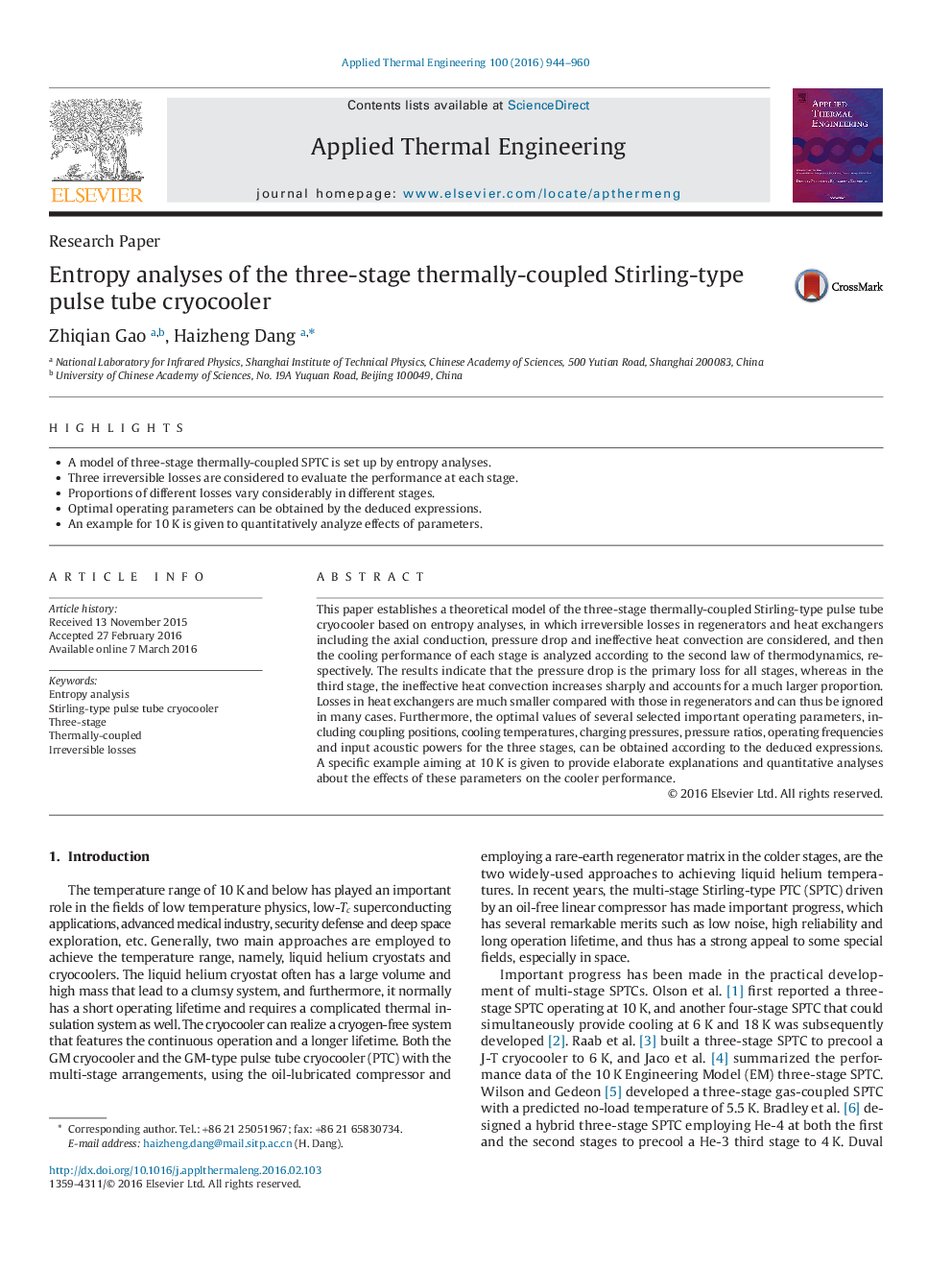| Article ID | Journal | Published Year | Pages | File Type |
|---|---|---|---|---|
| 644932 | Applied Thermal Engineering | 2016 | 17 Pages |
Abstract
This paper establishes a theoretical model of the three-stage thermally-coupled Stirling-type pulse tube cryocooler based on entropy analyses, in which irreversible losses in regenerators and heat exchangers including the axial conduction, pressure drop and ineffective heat convection are considered, and then the cooling performance of each stage is analyzed according to the second law of thermodynamics, respectively. The results indicate that the pressure drop is the primary loss for all stages, whereas in the third stage, the ineffective heat convection increases sharply and accounts for a much larger proportion. Losses in heat exchangers are much smaller compared with those in regenerators and can thus be ignored in many cases. Furthermore, the optimal values of several selected important operating parameters, including coupling positions, cooling temperatures, charging pressures, pressure ratios, operating frequencies and input acoustic powers for the three stages, can be obtained according to the deduced expressions. A specific example aiming at 10âK is given to provide elaborate explanations and quantitative analyses about the effects of these parameters on the cooler performance.
Related Topics
Physical Sciences and Engineering
Chemical Engineering
Fluid Flow and Transfer Processes
Authors
Zhiqian Gao, Haizheng Dang,
